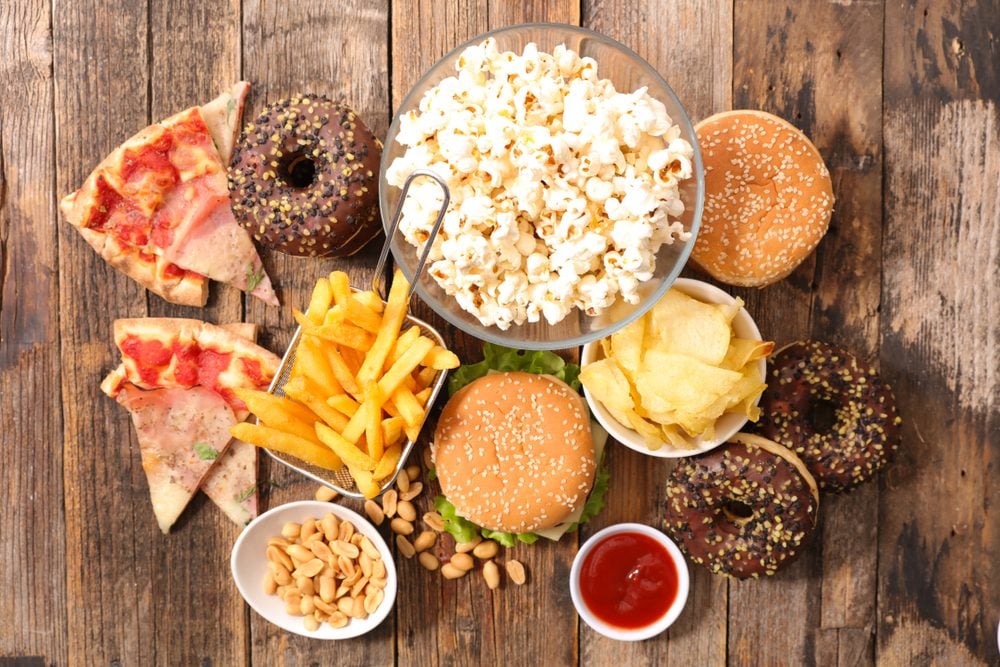America’s taste for fast meals tells a story that’s bigger than expanding waistlines. There’s a tale to inform approximately American values. Pass the fries and come for a ride. Nowhere special. I usually wanted to go there.

—THE WACO KID”
“In the summer season of 2012, vivid yellow flyers had been posted around Bethel, a remote town of six thousand unsuspecting souls on the bush of western Alaska, with some existence-changing news: In some brief weeks, a logo-new Taco Bell could host its grand beginning, simply in time for the 4th of July. In a historically dry town with one paved avenue, one measly Subway keep, and no public transportation, the assertion changed into met with ecstasy and jubilation. Word whipped around the city as quickly and enthusiastically as a subarctic breeze.”
“Tragically for the parents of Bethel, the news became fake. The symptoms directed everybody inquisitive about operating at the landmark Taco Bell to-be to name a range of indexed on the flyer. The wide variety belonged to a nearby resident who changed into apparently embroiled in a 7-layer feud with a diabolical hoaxer. The besieged victim had to interrupt the information dozens of times over: There could be no Taco Bell for the 4th of July in Bethel, Alaska.”
“As swiftly as the joy had spread, dejection and low spirits accompanied. ‘That’s proper. Officially, Bethel isn’t getting a Taco Bell,” went one local radio broadcast after a flood of calls. ‘I repeat: Bethel is not getting a Taco Bell.’ The hoax intended that the nearest Cheesy Gordita Crunch might continue to be a 400-mile trek by using a plane to Anchorage. ‘We were given excited because we don’t have any fast-food chains out here, and the concept of Taco Bell coming in?’ the despondent director for the neighborhood Chamber of Commerce informed the Los Angeles Times. ‘And they were going to be right here for the 4th of July?’”
“Bethel is impossibly isolated, simplest on hand via either air or sea. So, when information of the cruel hoax reached Taco Bell headquarters in Irvine, California, the organization had no choice but to respond using dispatching a navy helicopter to airlift a branded taco truck to Bethel proper because the town’s Independence Day celebrations have been getting underway.
“Operation Alaska” protected the dramatic shipping of 950 pounds of red meat, 500 kilos of bitter cream, 300 kilos of tomatoes, 300 kilos of lettuce, and 150 pounds of cheddar cheese, followed by way of the meeting and goodwill distribution of 10,000 Doritos Locos Tacos to an exhilarated crowd. ‘If we can feed human beings in Afghanistan and Iraq, we will feed people in Bethel,’ stated Taco Bell’s then-CEO, Greg Creed, adding to the semi-diffused militarism of the pre–Independence Day. Taco airlift.”
“Given Bethel’s size and remoteness, the outlet of a permanent Taco Bell outpost never become feasible. But on a cloudy, 55-diploma summertime afternoon in a tundra metropolis in western Alaska, the organization conspired to create a brief and surreal sense of belonging thru an unlikely mixture of spectacle and pre-prepared food.”
“Of route, the tale of Operation Alaska would be adapted into a touching country-wide Taco Bell business. The advert had it all. Disappointment and then euphoria, the minor fall, and the main elevate. It capabilities Bethel’s mayor along with a number of the townsfolk glumly recounting their dashed hopes for tacos amid some choice B-roll of Alaskan wildflowers and a GONE MUSHING signal. Then, we see the redemptive image of a helicopter touchdown, its rotors whirring, with a taco truck swaying beneath like a serum for desolation.
A happy, disbelieving crowd amasses, and telegenic children blissfully chow into one of the emblem’s newest and maximum fabled products, the Doritos Locos Taco. And much like that, America’s birthday had been stored.”
“Fast food occupies an outsize region in the American way of life. The grease runs through our countrywide veins.
But the meals themselves, the White Castle sliders, the KFC buckets, the Whoppers and Baconators, and Egg McMuffins are only part of the story. Because, as Adam Chandler argues in his new ebook, Drive-Thru Dreams: A Journey Through the Heart of America’s Fast-Food Kingdom, those are not truly restaurants. They are national institutions, roadside embodiments of the first-class of America, and the worst of it.”
“Critics often accuse McDonald’s and its ilk of being monoliths that throw around their influential buying and advertising and marketing electricity to public harm,” Chandler writes. In this column: unlivable wages, poor working situations, the poor remedy of animals, and food of questionable nutritional cost, start. All that, he agrees, is true. Yet, it might be a mistake to put in writing the whole lot off. There are a purpose rapid meals occupies one of these wonderful locations in our hearts, and it’s now not just that we’re all silly and dangerous.”

